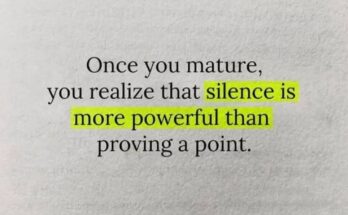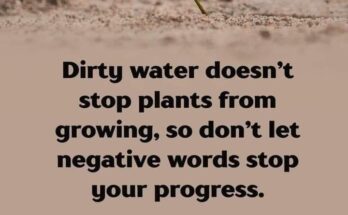Aldous Huxley, best known for his dystopian novel Brave New World, once stated, “Facts do not cease to exist because they are ignored.” This profound observation underscores a fundamental truth about reality: whether or not we choose to acknowledge them, facts remain unchanged. Our perception may shift, and our willingness to confront reality may waver, but facts persist beyond human ignorance, wishful thinking, or denial.

Throughout history, society has frequently ignored or dismissed inconvenient truths, often with dire consequences. From climate change to historical injustices, from personal health choices to the evolution of science, the reluctance to acknowledge facts has shaped and, in some cases, hindered human progress. This essay explores the implications of Huxley’s statement, examines key truths that people tend to ignore, and highlights why acknowledging reality is essential for individual and collective growth.
The Nature of Facts: Unchanging and Unyielding
Facts, by definition, are objective realities that exist independently of human beliefs or opinions. They are verifiable through evidence, observation, and logical reasoning. Yet, despite their immutability, many people attempt to dismiss, distort, or ignore facts for various reasons, including psychological comfort, ideological beliefs, and social conditioning.
Ignoring facts does not eliminate their consequences. A person who refuses to accept the reality of gravity will still fall if they step off a ledge. A smoker who denies the dangers of tobacco will still face health risks. A society that refuses to acknowledge systemic injustice will continue to suffer its repercussions. Reality does not bend to human convenience; rather, it asserts itself, often in painful and unavoidable ways.
Why People Ignore Facts
Understanding why people ignore facts is crucial in addressing this issue. Several psychological and societal factors contribute to the widespread tendency to dismiss inconvenient truths:
- Cognitive Dissonance: When faced with information that contradicts deeply held beliefs, people experience discomfort. To reduce this psychological tension, they may choose to reject or rationalize away the new information rather than confront the possibility that they were wrong.
- Confirmation Bias: Humans naturally seek out information that supports their existing views while ignoring or discrediting evidence that challenges them. This bias reinforces ignorance and prevents growth.
- Fear and Anxiety: Some facts are unsettling, such as the reality of climate change, the inevitability of death, or the flaws within one’s own belief system. Ignoring these truths can provide temporary emotional relief, even if it ultimately leads to harm.
- Social and Cultural Conditioning: Many societal norms and traditions are built on outdated or misleading beliefs. People often resist facts that challenge their cultural or religious upbringing, fearing ostracization or identity crisis.
- Manipulation and Misinformation: Governments, corporations, and interest groups have historically used propaganda, selective reporting, and outright lies to shape public perception. When people are bombarded with falsehoods, they may struggle to recognize or accept the truth.
Truths That People Tend to Ignore
1. Climate Change Is Real and Human-Caused
One of the most pressing facts that many continue to ignore is the reality of climate change. Despite overwhelming scientific evidence, political and economic interests have led to widespread misinformation and denial. Rising temperatures, melting glaciers, extreme weather patterns, and biodiversity loss all serve as undeniable proof of global warming. Yet, many continue to dismiss the urgency of action, prioritizing short-term economic gain over long-term survival.
Ignoring climate change does not make it disappear. Every year of inaction exacerbates environmental degradation, making it harder for future generations to thrive. The refusal to acknowledge this fact stems from both cognitive dissonance and economic interests, but the consequences—natural disasters, food shortages, rising sea levels—are already proving impossible to ignore.
2. Historical Injustices Have Long-Lasting Consequences
Many societies tend to ignore or downplay past injustices, believing that history is separate from the present. However, systemic issues such as racism, colonialism, and economic inequality have deep historical roots, and their consequences persist today.
For example, the transatlantic slave trade and centuries of racial discrimination have left generational scars in many societies, affecting economic opportunities, education, and social mobility. Similarly, the impacts of colonization continue to shape global power dynamics and wealth distribution. Dismissing these realities does not erase their effects; rather, it prevents meaningful progress toward equity and justice.
3. Health and Wellness Require Effort
Many people ignore the fundamental fact that maintaining good health requires consistent effort. The rise in preventable diseases such as obesity, diabetes, and heart disease is largely due to poor lifestyle choices. Despite abundant evidence supporting the benefits of a balanced diet, regular exercise, and mental well-being, people often choose convenience over health, indulging in unhealthy foods, sedentary habits, and stress-inducing lifestyles.
The consequences of ignoring this fact are severe: rising healthcare costs, decreased quality of life, and preventable deaths. Acknowledging and acting on health-related facts is essential for personal well-being and societal sustainability.
4. Science and Knowledge Evolve
Another commonly ignored truth is that scientific knowledge is constantly evolving. Many people resist change, clinging to outdated beliefs even when new evidence emerges. This has been evident in the resistance to vaccines, the skepticism toward space exploration, and the reluctance to accept scientific advancements in fields like genetics and artificial intelligence.
Rather than fearing new discoveries, society should embrace the evolving nature of knowledge. Science is a self-correcting process, and adapting to new information is crucial for progress.
The Consequences of Ignoring Facts
When societies or individuals ignore reality, the consequences can be severe. History is full of examples where willful ignorance led to disaster:
- The 2008 Financial Crisis: Warnings about risky lending practices were ignored, leading to a global economic meltdown.
- The COVID-19 Pandemic: Denial of scientific recommendations resulted in preventable deaths and prolonged hardships.
- The Fall of Civilizations: Societies that ignored environmental degradation, economic instability, or social unrest eventually collapsed, from ancient Rome to the Mayan civilization.
Ignoring facts often leads to delayed action, making problems harder to solve in the long run. The sooner facts are acknowledged, the better the chances of mitigating harm and finding solutions.
Embracing Reality: The Path Forward
So, how can individuals and societies move beyond ignorance and accept reality?
- Foster Critical Thinking: Education should prioritize critical thinking skills, teaching people how to analyze information, recognize biases, and differentiate between credible sources and misinformation.
- Encourage Open Dialogue: Societies must create spaces for open, respectful discussions where differing viewpoints can be examined without fear of backlash.
- Promote Science Literacy: A population well-versed in scientific principles is less likely to fall prey to misinformation and more likely to embrace reality-based solutions.
- Hold Leaders Accountable: Governments, media outlets, and corporations should be held responsible for spreading false information. Transparency and fact-checking should be prioritized.
- Cultivate Personal Responsibility: Individuals must take ownership of their own knowledge, making an effort to seek out truth rather than passively accepting comfortable lies.


